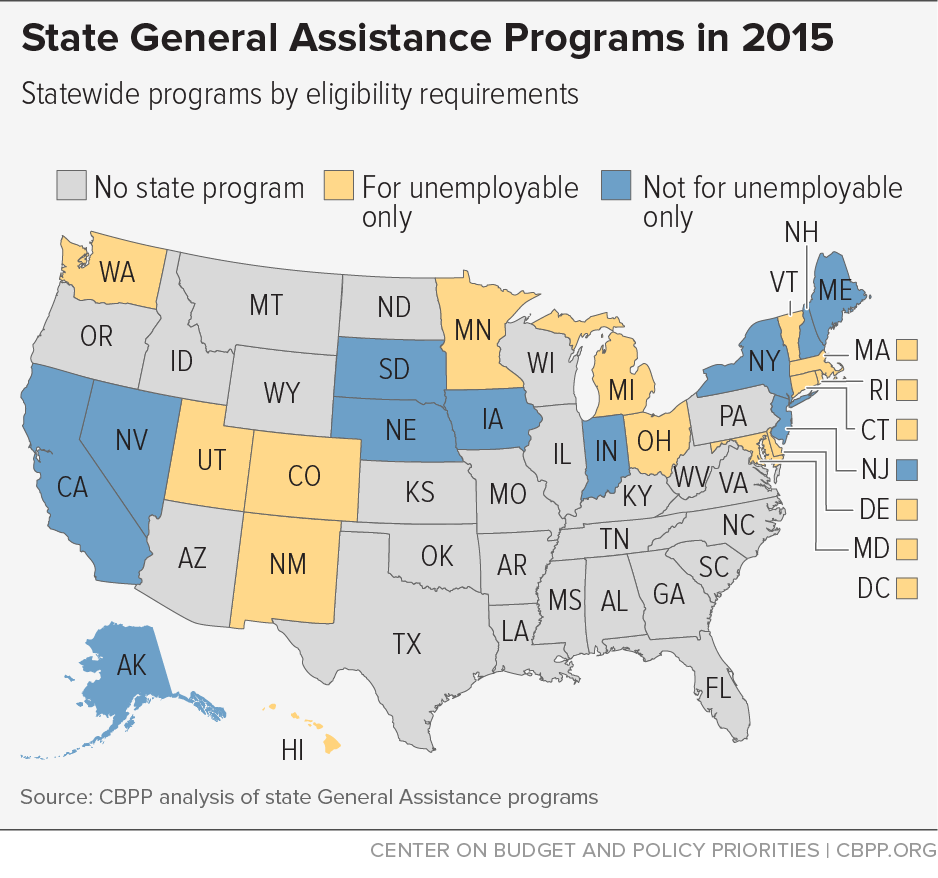BEYOND THE NUMBERS
State General Assistance programs, which provide a safety net of last resort for the very poor who don’t qualify for other public assistance, have weakened considerably in recent decades and are continuing to do so, our updated paper explains. The number of states with General Assistance programs has fallen from 38 to 26 since 1989, and benefits have shrunk in inflation-adjusted terms in nearly every state since 1998.
The decline of General Assistance highlights the risk of greatly expanding states’ control over safety net programs, as some have proposed, which could cause assistance for low-income Americans to erode badly over time.
The 26 states with General Assistance programs generally serve very poor individuals who don’t have minor children, aren’t disabled enough to qualify for (or don’t yet receive) Supplemental Security Income (SSI), and aren’t elderly. There’s no federally supported cash safety net program for poor childless adults who don’t receive SSI; Temporary Assistance for Needy Families only serves families with minor children.
In most of these 26 states, only individuals considered unable to work, generally due to a physical or mental condition, can receive General Assistance. Only 11 states provide General Assistance to able-bodied individuals. (See map.)
In nearly all 26 states, the maximum General Assistance benefit is below half of the poverty line for an individual; in half of them it’s below one-quarter of the poverty line. Benefit levels in many states haven’t changed in decades and thus have shrunk due to inflation. Some states have cut benefits further.
By and large, the federal government has left it up to states to provide basic assistance to childless adults who need it. States have never provided significant support for this group, and the continued weakening of General Assistance programs means that more poor childless adults — many of them with disabilities — will face severe hardship.

